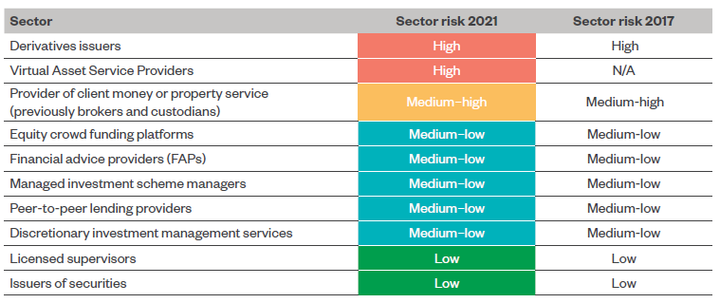
The Financial Markets Authority has found that cryptocurrency service providers face a high risk of being targeted by money launderers and terrorism financiers.
Photo: 123RF
The industry received the rating in the FMA’s latest sector risk assessment (SRA), which outlined different types of financial service providers’ exposure to illicit financial behaviour.
The risk profile for the majority of the nine sectors the FMA oversees had not changed since 2017.
However, virtual asset service providers (VASPs), which facilitate cryptocurrency, token or crypto-asset transactions were added and received the highest risk rating.
“Since our last assessment the risks of virtual assets, particularly cryptocurrencies, have become more prominent,” FMA director of supervision James Greig said.
“Virtual assets allow for greater levels of anonymity and have global reach, making cross-border payments easy.”
A sectors risk rating was determined by its complexity, liquidity of transactions and the anonymity that is afforded to customers.
This included the size of the business, the types of products being offered, their value, how products can be bought and sold, customer types and country risk.

Virtual Asset Service Providers or VASPs, which facilitate cryptocurrency transactions, were added to the list and received the highest risk rating.
Photo: Supplied
The FMA said that it expects all reporting entities to familiarise themselves with the risks and vulnerabilities associated with VASPs and virtual assets, and incorporate them into risk assessments when appropriate.
The primary supervisor of cryptocurrency service providers is the Department of Internal Affairs, with the FMA overseeing a very small number of VASPs.
The 2021 sector risk assessment also reaffirmed the high risks associated with derivatives issuers.
It follows recent action the FMA had taken against a handful of firms who had fallen short of meeting their anti-money laundering obligations.
“Derivatives issuers are naturally high risk because their products have high liquidity, accounts can be opened easily, and they can have many non-resident customers in higher-risk jurisdictions,” Greig said.
Greig also said that the rapid growth of retail investment platforms meant they may be targeted by money launderers because their compliance with their anti-money laundering obligations may not have kept pace.
This was highlighted earlier this year when the FMA put the retail trading platform Sharesies on notice for failing to verify nearly 8,000 customers identities and not carrying out adequate due diligence checks on clients.
“These platforms are highly liquid, allowing for high volumes of trading to take place without suspicion, and customers can create online accounts quickly without face-to-face verification, which favours anonymity,” Greig said.
“Although these platforms often have sophisticated systems to monitor accounts, they must collect sufficient information regarding the nature and purpose of the investment.”
The FMA expected all FMA-reporting entities to review the new SRA and update their own risk assessments accordingly, incorporating any new risks and findings, Greig said.
This news is republished from another source. You can check the original article here

Be the first to comment